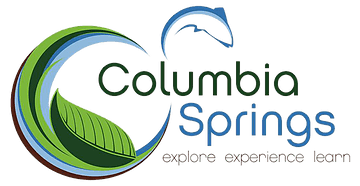This is the first entry in a series of blog posts by guest writers sharing how fishing has impacted their lives and shaped their views on the environment.
By Jordan Nelson, MHCC Fisheries student
My name is Jordan, and I was born in California in 1993, into a family that values the great outdoors. I was always inspired by creating things, whether that be preparing a meal, painting a picture, or building something. It was the act of manifesting an idea and turning it into a tangible item that can be enjoyed by others that I found fulfilling. I write to you today to discuss how fishing as a child has shaped the way I view the environment and ultimately how it led me to pursuing a career in fisheries.
As a child I visited my family every summer in Western Kentucky. There was always a construction project going on, where I learned basic maintenance and building skills. We tended the garden, raised chickens, hunted, foraged. Much of our free time we were fishing for Bass, Crappie, and Catfish. I have very fond memories of catching our own fish and preparing it as a meal. As a kid I took great pride in providing 100% of the ingredients ourselves and I still do. We would invite the neighbors over and enjoy the fruits of our labor, all in good company.
When I was 11, I moved from a small town to an even smaller town in California with a population of less than 100 people. My closest neighbor was 2 miles away. We had 40 acres and a property line that butted up against the Plumas National Forest, so I had 100,000 acres as my backyard with plenty of streams and lakes for fishing. There we lived off the grid with no municipal utilities. We had our own well for water and a septic system for waste. As well as a small solar system and a generator that provided us with just enough electricity to get by without much leftover for luxury items like TV or video games. So, we spent our weekends hiking, camping, stargazing, mountain biking, hunting, and fishing for trout. With limited electricity available, we had no AC in the summer and our only source of heat was a wood burning stove in the winter. I can recall as a 12-year-old, happily layering up to go outside and chop wood in the snow at 18 below zero to keep my mom and newborn brother warm. Growing up this way gave me a better understanding of where your resources come from and gave me a greater respect for them.


In 2021, my wife and I bought a home in Northern Oregon. It’s not 100,000 acres, its only ¾ of an acre, but it’s ours and I am very grateful to be here. Studying fisheries has given me a better understanding of how our ecosystem works and how I play a role in it. It has taught me more sustainable fishing practices. I have taken all the skills I’ve learned through my childhood and adult life and get to apply them to my very own space. Now I spend my days rafting and fishing. I get to share my own self-provided meals with new friends and family and teach the next generation how to fish and enjoy what the outdoors has to offer. It is a personal goal of mine to be a good steward to the land and ensure that it is here and healthy for future generations to enjoy. Which is ultimately what led me to pursue a career in fisheries. It would be a tragedy if children in the future never had the opportunity to experience the world the way I did and connect to the environment in a way that fishing allows.
My time growing up off grid and fishing in the outdoors with family had a huge impact on who I am today. It taught me self-sufficiency and a respect for my resources. I am grateful for the experiences I’ve had, and I look forward to the experiences to come as I pursue fisheries as a career.
Jordan is a student in the Mt. Hood Community College (MHCC) Fisheries Program. Columbia Springs proudly partners with the MHCC Fisheries Program. Check out their website for more information.

